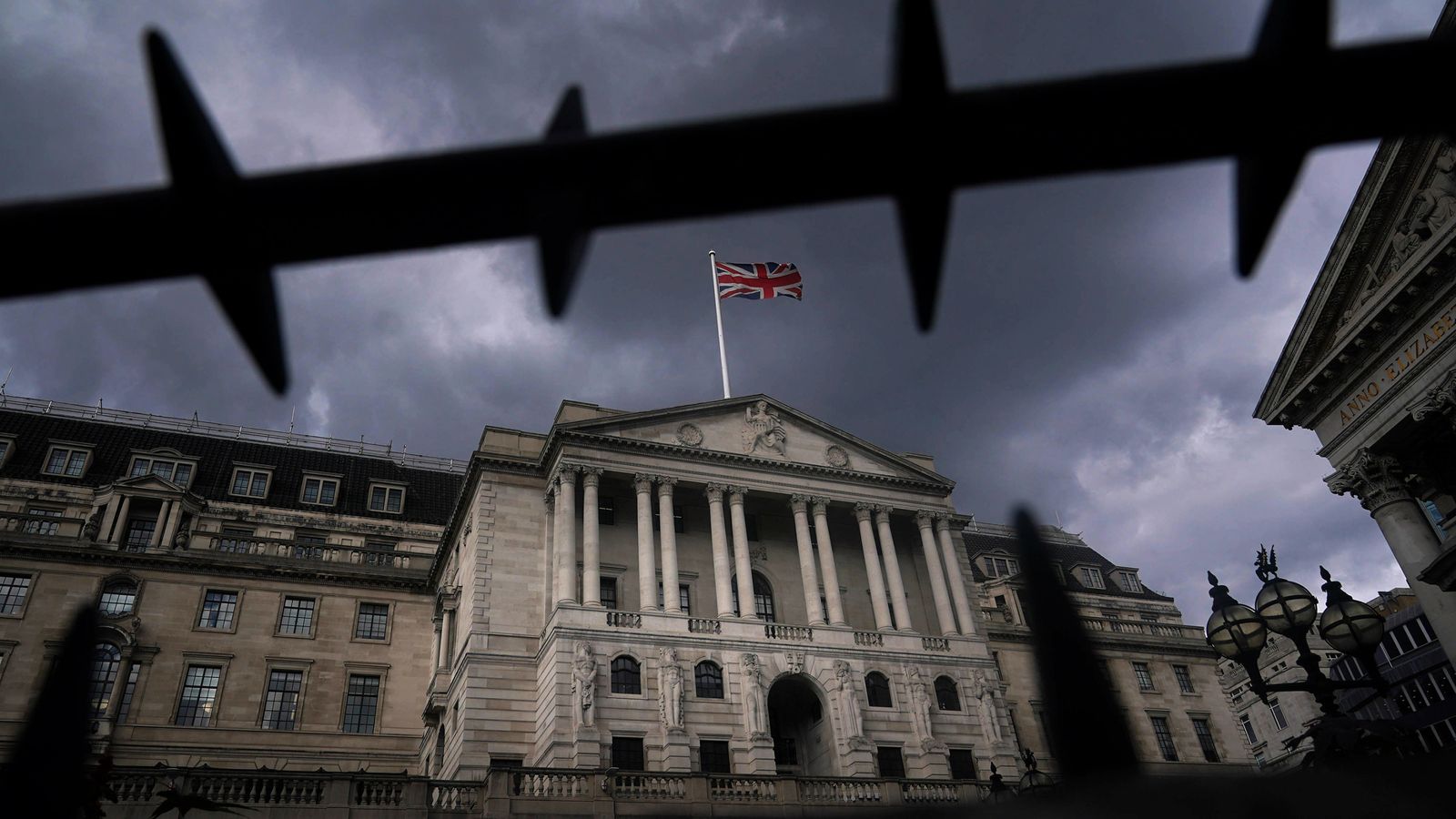The Bank of England’s intervention in the bond markets was prompted by a need to address a technicality in pension investments that threatened to undermine the entire financial system.
The risk the Bank identified was the potential for a run on pension funds’ managing defined benefit schemes, which guarantee a fixed income when a pension is cashed in.
The Bank of England estimates these funds hold around £1.5tn in assets, around £1tn of which is held in bonds, a run on which had the potential to crash the pensions market entirely.
Long-dated bonds are particularly popular with these funds because they offer fixed income over decades. Because the funds have to guarantee a certain level of pay out, however, they augment bond holdings with financial devices known as derivatives to manage risk and increase holdings.
Read more:
What are bonds, how are they different to gilts and where do they fit in the mini-budget crisis?
What’s going on with the economy? Here’s a breakdown
Many of them pursue what the industry calls liability driven investment strategies, intended to reduce risk and maintain or improve funding levels over time.
Typically this involves “leveraging” bond holdings, effectively borrowing against them. A fund using this strategy might buy a government bond and then borrow against it to buy another bond, and may even repeat the process a third time, tripling the holding with the risk offset by an equivalent hedging strategy.
Struggling to stay on top of what’s going on with the economy? Here’s a breakdown
Bank of England’s extraordinary response to government policy is almost unthinkable | Ed Conway
IMF warns UK against mini-budget that will ‘likely increase inequality’
With long-dated bond markets usually stable the pension fund’s exposure to any change in price is usually manageable. The collapse in economic confidence after Kwasi Kwarteng’s economic statement last week transformed the picture, however.
The loss of confidence caused bond yields to rise sharply, effectively investors demanding a greater return to buy UK debt. When bond yields rise, the cost of the bond itself falls in direct proportion, so the doubling in yield seen over recent days led to a halving of the value of the underlying asset.
For pension funds holding £1tn worth of bonds leveraged at twice the price that was a major problem.
The collapse in bond prices left them facing calls for cash or collateral from institutions they had hedged their risk with, and required them to refinance their leveraged holdings.
Please use Chrome browser for a more accessible video player
Lacking the cash to meet these demands for collateral, funds would have no choice but to sell assets, prompting fears of a “run” in which funds all exposed to the same market sought to liquidate assets at once, a fire sale that could have crashed the market.
To prevent a run, the Bank announced it would buy at least £65bn of UK government debt over the next 13 days, a move intended to bring down yields by introducing more demand into the market, and in turn ease the pressure on pension funds and give them time to rebalance their books and conduct an orderly sale of assets.
So far it appears to have worked. What remains unclear is what other unintended or ignored consequences of the government’s new economic course are yet to surface.








